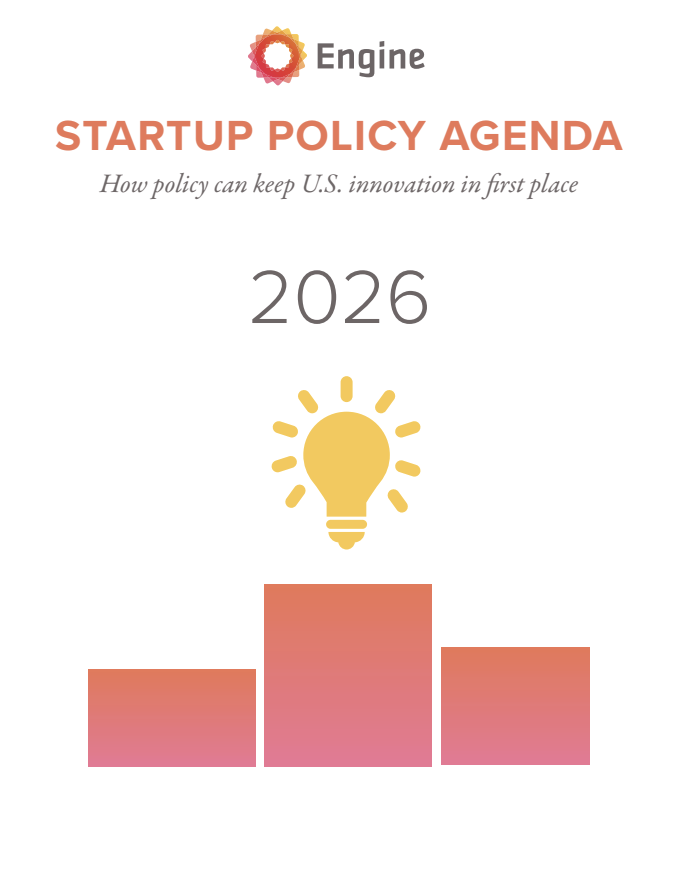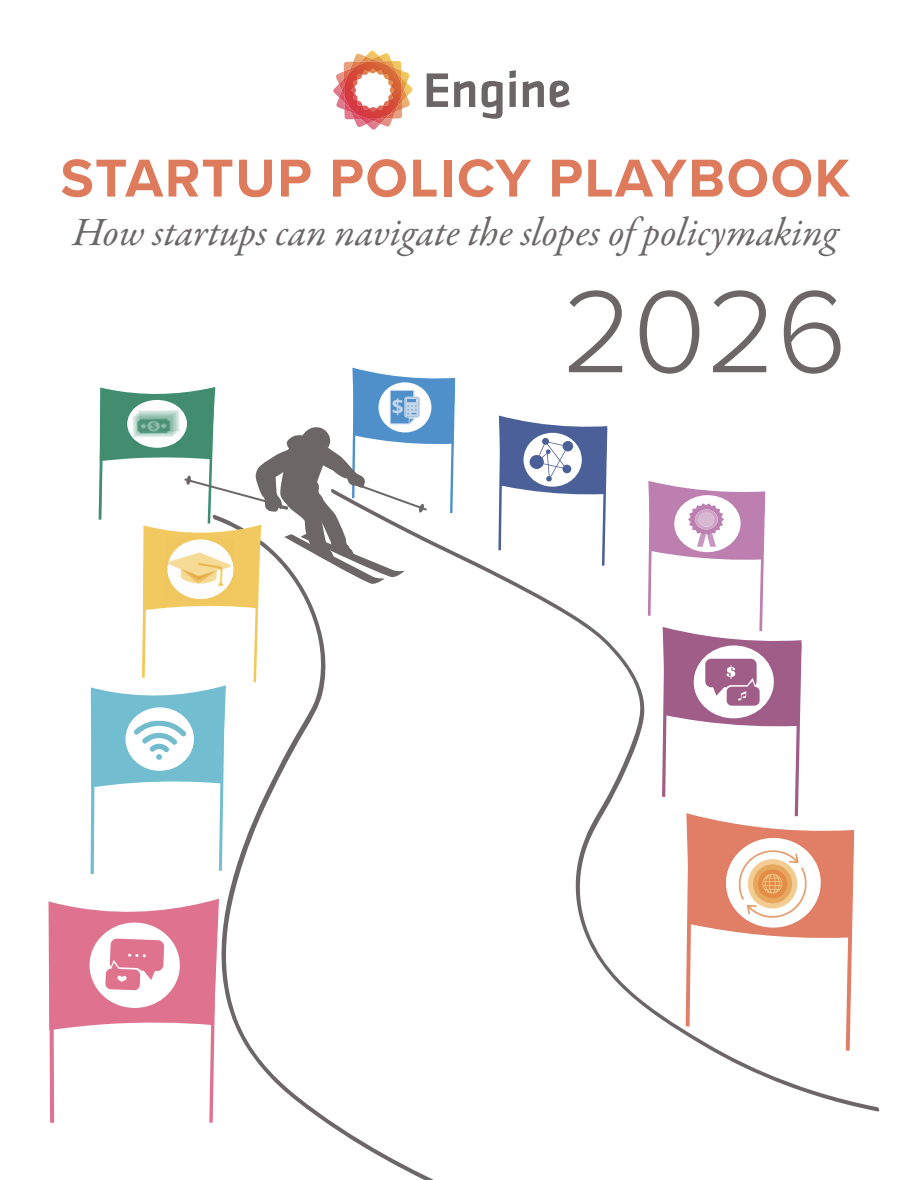The Big Story: Lawmakers scrutinize Chinese social media app TikTok. The Senate Judiciary Subcommittee on Crime and Terrorism held a hearing on Tuesday to examine how technology companies might be exposing user data to “criminals, China, and other bad actors,” with lawmakers spending much of the time lambasting popular social media app TikTok for not sending a representative to testify before the panel.
#StartupsEverywhere: Denton, Texas
Move over, Houston. Another Texas city is making waves in space. Kubos is bringing outer space down to earth in Denton, Texas with open source software solutions for satellite mission control. We spoke with Kubos’ CEO and co-founder, Marshall Culpepper, to get some insight into his exciting company and the Denton startup ecosystem.
Engine submits comments to Senate Judiciary Subcommittee on patent quality
Don’t let ISPs block strong encryption protocols
Startup News Digest 11/01/19
The Big Story: The importance of small business exports. A new study released this week highlighted how American small businesses have successfully leveraged the explosive growth of the digital economy over the past several decades to make significant contributions to the U.S. economy.
#StartupsEverywhere: Chicago, Illinois
Chicago has the highest concentration of female-led startups in the United States, with more than one-third of the city’s startups run by women. One of these successful women-run businesses is Cloche Invest, a recently launched investment platform focused on helping millennial women grow their wealth. Ari Carter, the Co-Founder and Chief Financial Officer of Cloche Invest, saw that current investment platforms were not adequately catering to the needs of young women. Together with her Co-Founder, Peyton Pritikin, Ari is focused on creating a new generation of financially independent women.
Policymakers need to reduce barriers to entrepreneurship
Although entrepreneurs are responsible for nearly all net new job creation, policymakers have frequently prioritized big business over new business. That’s why entrepreneurship champions across the country have joined together to form the Start Us Up coalition to urge policymakers to reduce barriers to entrepreneurship.
Startup News Digest 10/25/19
The Big Story: House passes troubling copyright bill. The House this week voted in favor of the Copyright Alternative in Small-Claims Enforcement Act (CASE Act), legislation that would create an extra-judicial Copyright Claims Board within the U.S. Copyright Office to adjudicate “small-claim” copyright infringement claims.
#StartupsEverywhere: Orange County, Calif.
Engine's statement on House passage of CASE Act
The House’s vote in favor of the CASE Act is disappointing, particularly because there were no hearings or debates in the lower chamber to discuss the many flaws in this legislation. The bill is purportedly designed to protect small copyright holders by establishing an extra-judicial Copyright Claims Board within the U.S. Copyright Office to adjudicate infringement claims outside of a federal court setting. However, without the traditional safeguards of the federal courts, this newly established tribunal would have the authority to grant substantial financial damage awards — up to $30,000 per proceeding — to potentially abusive parties looking to strong-arm settlements from unsuspecting companies and online users.
Startups and non-compete agreements
As conversations swirl around the use of non-compete agreements in the labor market, it is important that lawmakers consider the effects of these agreements on startup formation and talent acquisition. Instead of protecting legitimate business interests, non-compete agreements are often used to block competition, prohibiting talented Americans from starting their own innovative ventures and from hiring the talent they need to succeed and to be competitive.
Startup News Digest 10/18/19
The Big Story: Keeping U.S. cryptocurrency globally competitive. Ahead of next week's hearing featuring Facebook CEO Mark Zuckerberg discussing cryptocurrency, another Facebook official warned this week that China will be at an advantage if U.S. policymakers fail to come up with a system to regulate cryptocurrencies like Facebook's Libra.
Intermediary liability protections have allowed startups to thrive
Startup News Digest 10/11/19
The Big Story: U.S. acts on Chinese firms. The U.S. Commerce Department added eight Chinese artificial intelligence companies to its trade blacklist this week, even as reports emerged that the Trump administration plans to issue licenses to allow some U.S. companies to continue supplying nonsensitive products to Chinese telecoms firm Huawei. The decisions both came as the U.S. and China resumed discussions this week to resolve their ongoing trade dispute.
FTC's COPPA rule review should consider impact on startups
The FTC is reviewing potential updates to a children’s privacy law to determine whether changes need to be made to the law to account for “evolving business practices.” While protecting children’s privacy online is a shared goal of the FTC and the tech community, some potential changes to the rules under the law could impact platforms across the Internet, especially startups.
Startup News Digest 10/04/19
The Big Story: Federal court issues ruling on net neutrality.The U.S. Court of Appeals for the District of Columbia Circuit this week upheld parts of the Federal Communications Commission’s 2017 repeal of the popular net neutrality rules, although the court struck down a portion of the agency’s order that kept states from enacting their own net neutrality regulations.
#StartupsEverywhere: Pittsburgh, Pa.
Pittsburgh may be nicknamed the Steel City, but a new and exciting startup is highlighting the growing entrepreneurial community emerging in western Pennsylvania. Shimira Williams, the co-founder of C.C. Busy and a former child care provider, is using voice assistant devices to help providers do their jobs better -- an approach that has already garnered early interest from the state of Pennsylvania, nonprofits, and child care providers.
San Francisco-based tech companies express concerns with CASE Act
Five San Francisco-based tech companies sent a letter to Speaker of the House Nancy Pelosi (D-Calif.) and Senators Diane Feinstein (D-Calif.) and Kamala Harris (D-Calif.) today, expressing “significant concerns” with the CASE Act. The proposed bill would create an extra-judicial board within the U.S. Copyright Office to adjudicate copyright infringement claims outside the traditional safeguards of federal court.
Report: Nuts & Bolts of Content Moderation
In this report, and through a series of events in Washington, D.C. in the summer of 2019, Engine and the Charles Koch Institute sought to unpack the nuts and bolts of content moderation. We examined what everyday content moderation looks like for Internet platforms and the legal framework that makes that moderation possible, debunked myths about content moderation, and asked attendees to put themselves in the shoes of content moderators.
Statement on Mozilla v. FCC Decision
“Today’s DC Circuit Court decision is disappointing, particularly because the court, like the FCC, failed to take seriously the reliance interests of startups, entrepreneurs, and investors on the FCC’s enforcement of net neutrality protections. The startup ecosystem has grown over the past decade precisely because of the FCC’s long history of using its authority to stop abusive ISP practices—authority the current FCC has now abandoned.”












